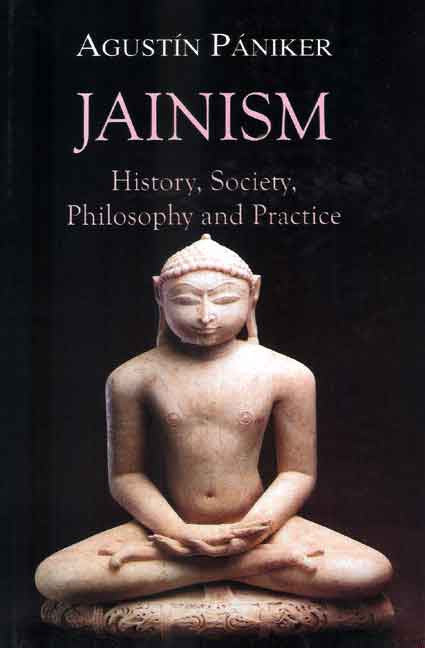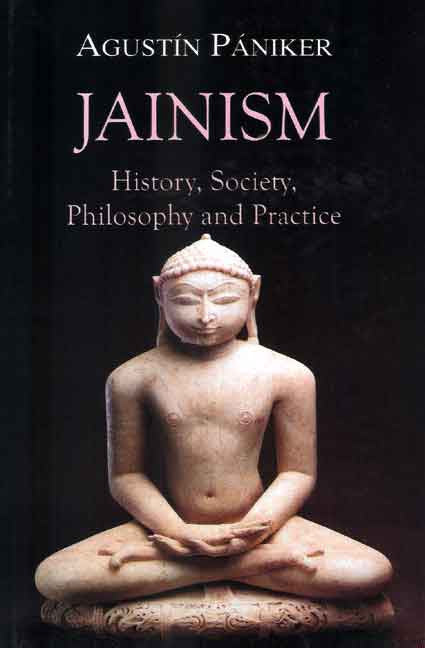Jainism: History, Society, Philosophy and Practice
![]() 100% Genuine New Books
100% Genuine New Books
![]() Fast Shipping with Tracking Number
Fast Shipping with Tracking Number
Secure Payments via UPI, Cards & Wallets
![]() Trusted Support & Easy Returns
Trusted Support & Easy Returns
Jainism: History, Society, Philosophy and Practice - Hardcover is backordered and will ship as soon as it is back in stock.
ISBN : 9788120834606, 8120834607
Year of Publication : 2017
Edition : Latest Reprint
No. of Pages : 541
Language : English
Condition : New
Publisher: Motilal Banarsidass Publishing House
Free shipping on orders over Rs. 249
Free shipping on orders over Rs. 249
We offer free shipping on orders above Rs. 249 in India. For orders below this threshold, a nominal shipping fee may apply, which will be clearly indicated during the checkout process.
How long will it take to receive my order?
How long will it take to receive my order?
The delivery time varies depending on your location. Generally, orders are processed and shipped within 1-3 business days. Once shipped, you can track and expect your order to arrive within 3-7 business days (the duration may vary depending on your location). For more information, please refer to our shipping policy.
Chat with a Real Person
Chat with a Real Person
WhatsApp chat is dedicated to assisting with after-sales queries regarding delivery, returns, and payments. Click below to initiate chat with us on WhatsApp:
[Bookstaa WhatsApp Chat].
For all other inquiries, please visit our customer support page or email us at support@bookstaa.com.
Couldn't load pickup availability
Description
Description
Jainism is a tradition which dates back thousands of years, which is unbelievably rich and profound and which has certain unmistakable signs of identity. Contrary to what some might think, it is not in any sense a poor relation of Buddhism, nor is a strange, atheistic and ascetic sect within Hinduism. Jainism is, above all, the religion of non-violence (ahimsa), an ideal which all other religions of India were subsequently to make theirs and which was made universal by Gandhi in the 20th century. Like Buddhism, Jainism is a religion without God which paradoxically opens to the truly sacred in the deepest reaches of all living beings in the cosmos. And it is also the religion of non-absolutism (anekantavada), a particular form of philosophical pluralism, which seems astonishingly modern.
The author traces the dynamics and development of Jainism-deftly steering between the extremes of the overly academic and the superficial. He looks at Jainism's main features: its cosmology, mythology, its origins and great figures, its main subdivisions and religious groups, its scriptures, practices and soteriological approaches, as well as its rituals, the social, cultural and political interactions and so forth.
Jainism is both a didactic introduction and an invitation to study the religious traditions of Indian: a study of its philosophy, its art, its ways of life, its ways of being integrated into the world and releasing from it.
About the Publisher

Motilal Banarsidass Publishing House (MLBD)
Motilal Banarsidass Publishing House, popularly known as MLBD, is one of the oldest and most prestigious publishing houses in India, established in 1903.
With over a century of legacy, MLBD has been at the forefront of publishing scholarly works in the fields of Indology, Sanskrit, philosophy, religion, spirituality, yoga, Buddhism, and Jainism.
Renowned for its authenticity and academic rigour, MLBD's books are trusted by researchers, scholars, and readers across the globe.
With more than 5,000 titles in circulation, MLBD continues to uphold its commitment to preserving and promoting India’s rich cultural and philosophical heritage.
Bookstaa is an authorized distributor of MLBD books, ensuring 100% genuine and original publications for our readers.

